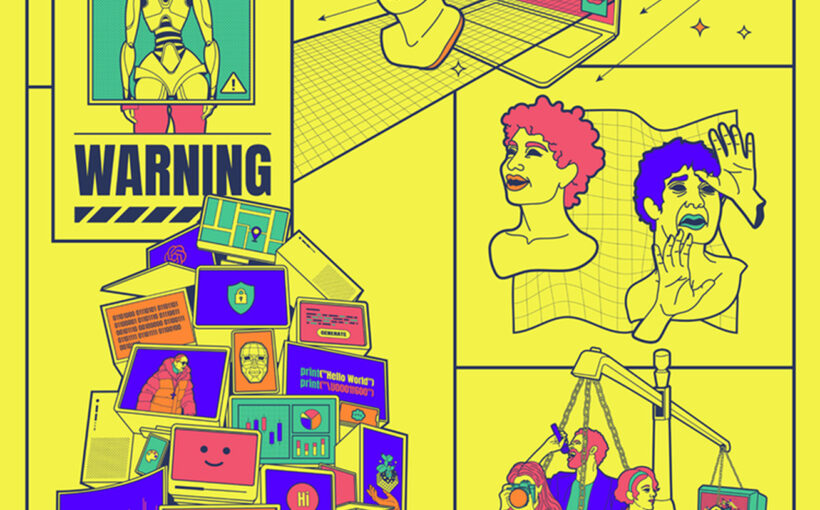
Who’s using AI?
AI is suddenly everywhere. Image generators and large language models are at the core of new startups, powering features inside our favorite apps, and — perhaps more importantly — driving conversation not just in the tech world but also society at large. Concerns abound about cheating in schools with ChatGPT, being fooled by AI-generated pictures, and artists being ripped off or even outright replaced.
But despite widespread news coverage, use of these new tools is still fairly limited, at least when it comes to dedicated AI products. And experience with these tools skews decidedly toward younger users.
Only 1 in 3 people have tried one of these AI-powered tools, and most aren’t familiar with the companies and startups that make them. Despite the many insurgents in the world of AI, like Stability AI and Midjourney, it’s still the work of Big Tech that substantially steers the conversation. OpenAI is the major exception — but arguably, thanks to its market cap and deals with Microsoft, it is itself now a member of the corpo-club.
AI use is dominated by Millennials and Gen Z

| Boomers: 4.8 million | Gen X: 15.8 million | Millenial: 36 million | Gen Z: 34.9 million |
One complicating factor, though, is that the definition of an AI tool is extremely fuzzy. We asked respondents about dedicated AI services like ChatGPT or Midjourney. But many companies are adding AI features to established software, whether that’s image generation in Photoshop or text suggestion in Gmail and Google Docs. And as the joke goes, AI is whatever computers haven’t done yet, meaning yesterday’s AI is, simply, today’s expected features.
Despite the limited usage of these tools so far, people have high expectations for AI’s impact on the world — beyond those of other emergent (and sometimes controversial) technologies. Nearly three-quarters of people said AI will have a large or moderate impact on society. That’s compared to 69 percent for electric vehicles and a paltry 34 percent for NFTs. They’re so 2021.
Will these technologies have a big impact on society?

How is AI being used?
The main fuel for the recent boom is generative AI: systems that can generate text, help brainstorm ideas, edit your writing, and create pictures, audio, and video. These tools are being quickly integrated into professional systems — Photoshop can reimagine parts of images, WordPress can write blog posts — but for most users, they generally require quite a bit of oversight to get it right.
Search, brainstorming, and art dominate current AI use


| Category | Usage |
|---|---|
| Photos | 37% |
| Music | 31% |
| Videos | 31% |
| Designs | 29% |
| Stories | 29% |
| Artwork | 27% |
| Emails | 25% |
| Answer a question | 68% |
| Blog posts | 19% |
| Coding | 18% |
| Brainstorming | 54% |
| Data analysis | 26% |
| Lyrics | 18% |
For those who are using AI tools, creative experiments were most common. People are generating music and videos, creating stories, and tinkering with photos. More professional applications like coding were less common. And above all, people have simply been using AI systems to answer questions — suggesting chatbots like ChatGPT, Bing, and Bard may replace search engines, for better or worse.
One finding is particularly clear: AI is expanding what people can create. In every category we polled, people who used AI said they used these systems to make something they couldn’t otherwise, with artwork being the most popular category within these creative fields. This makes sense given that AI image generators are much more advanced than tools that create audio or video.
Most people thought AI did a better job than they could have

The concerns around AI art
AI image generators like Midjourney and Stable Diffusion provide a good case study for broader issues involving generative AI. These systems are trained on huge amounts of data scraped from the web, usually done without the consent of the original creators. While there’s heated debate about the ethics, the legality of this practice is currently being questioned in numerous lawsuits. These arguments are quickly spreading to other generative mediums, like AI song generation.
Our survey shows that people have mixed feelings about how to respond to these ethical quandaries. Most people think artists should get compensated when an AI tool clones their style, for example, but a majority also don’t want these capabilities to be limited. Indeed, almost half of respondents said they’d tested the system by generating exactly this sort of output.
A lot of people have copied an artist — and a lot of people want to ban it, too




